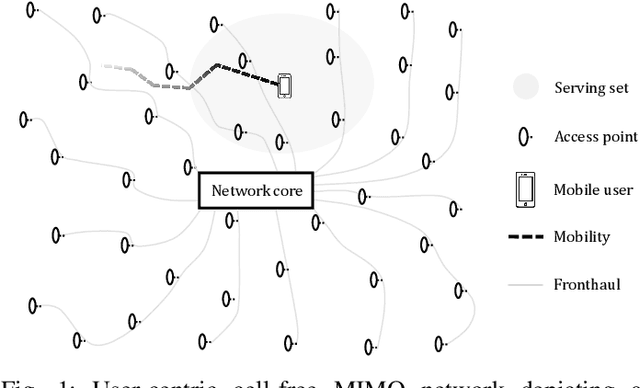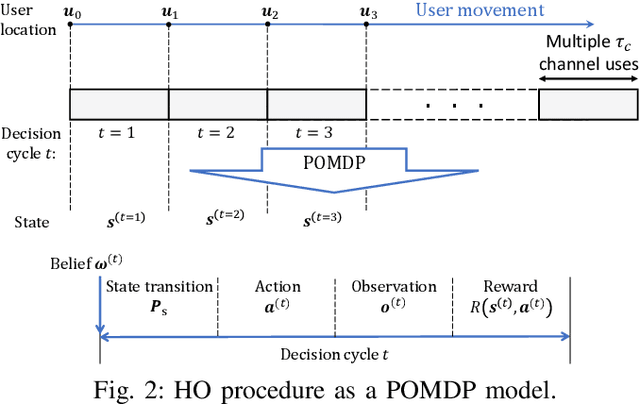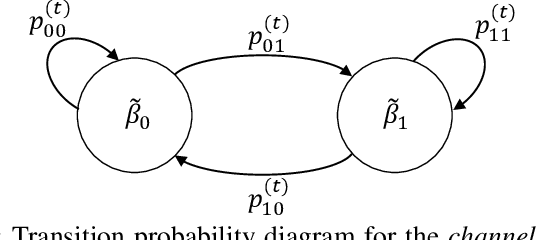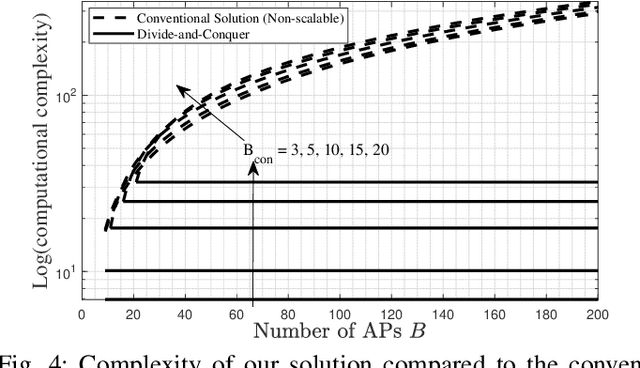Handoffs in User-Centric Cell-Free MIMO Networks: A POMDP Framework
Paper and Code
Mar 13, 2024



We study the problem of managing handoffs (HOs) in user-centric cell-free massive MIMO (UC-mMIMO) networks. Motivated by the importance of controlling the number of HOs and by the correlation between efficient HO decisions and the temporal evolution of the channel conditions, we formulate a partially observable Markov decision process (POMDP) with the state space representing the discrete versions of the large-scale fading and the action space representing the association decisions of the user with the access points (APs). We develop a novel algorithm that employs this model to derive a HO policy for a mobile user based on current and future rewards. To alleviate the high complexity of our POMDP, we follow a divide-and-conquer approach by breaking down the POMDP formulation into sub-problems, each solved separately. Then, the policy and the candidate pool of APs for the sub-problem that produced the best total expected reward are used to perform HOs within a specific time horizon. We then introduce modifications to our algorithm to decrease the number of HOs. The results show that half of the number of HOs in the UC-mMIMO networks can be eliminated. Namely, our novel solution can control the number of HOs while maintaining a rate guarantee, where a 47%-70% reduction of the cumulative number of HOs is observed in networks with a density of 125 APs per km2. Most importantly, our results show that a POMDP-based HO scheme is promising to control HOs.
 Add to Chrome
Add to Chrome Add to Firefox
Add to Firefox Add to Edge
Add to Edge